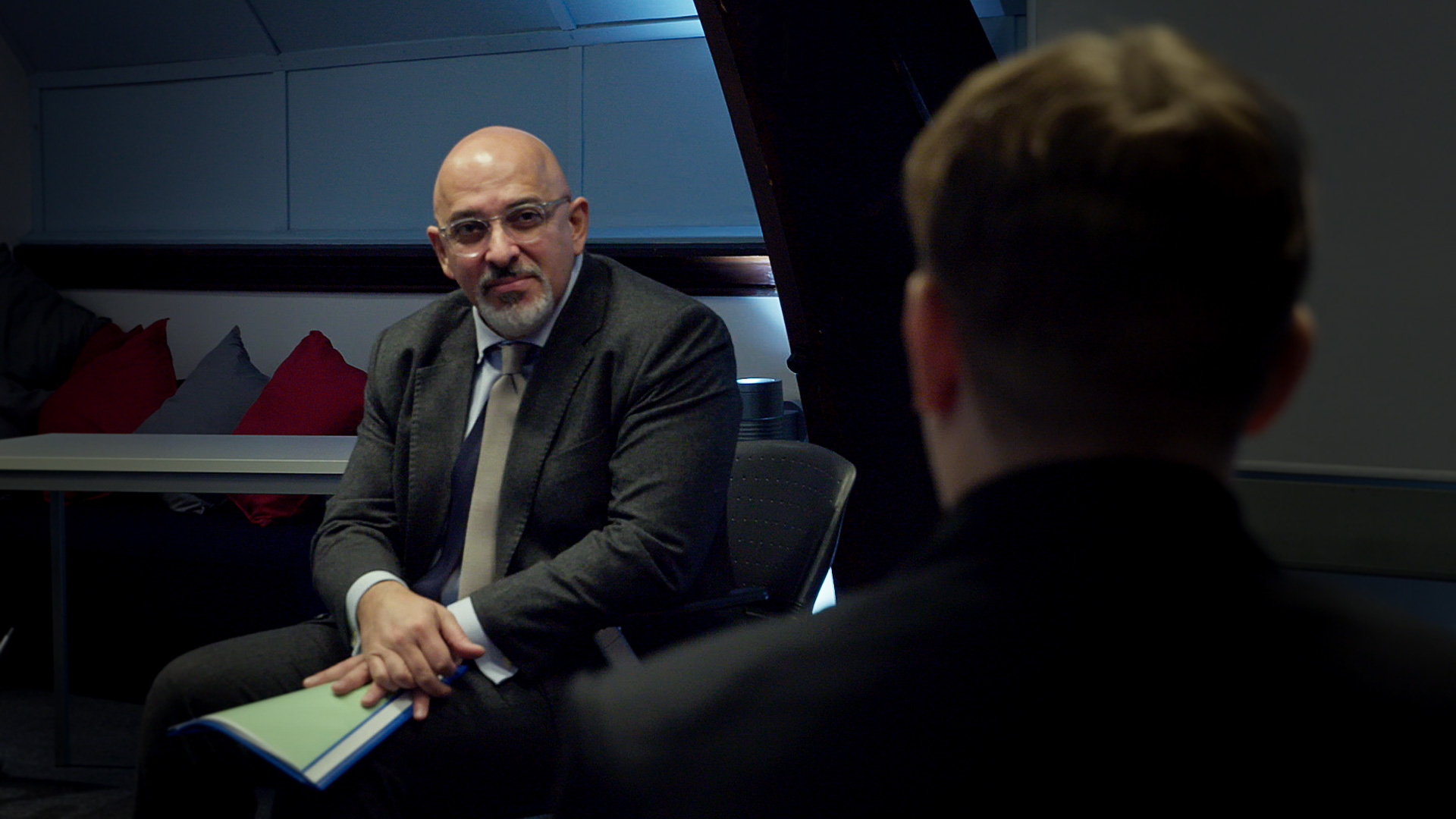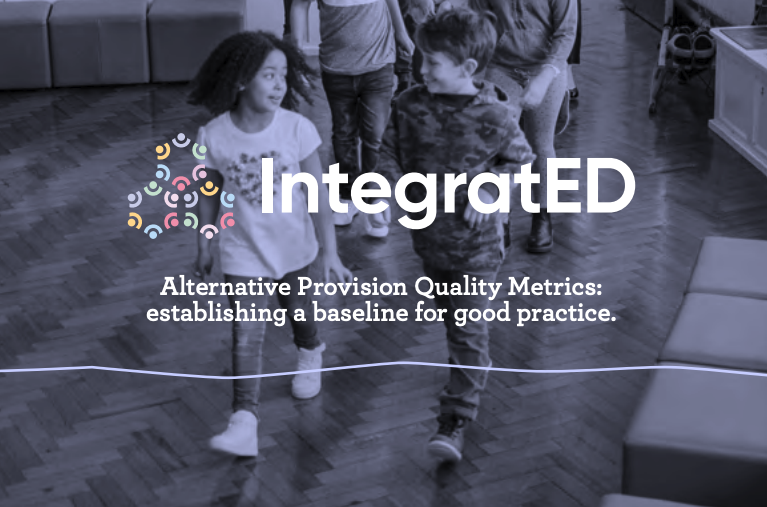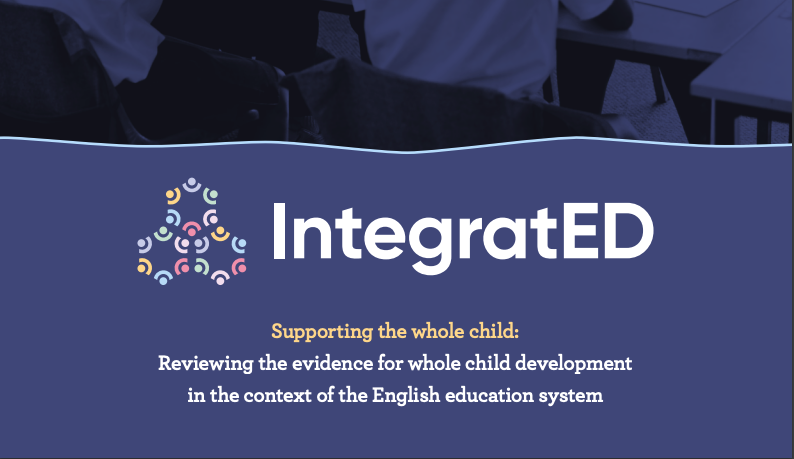
The Secretary of State for Education, Nadhim Zahawi, visited two of our collective impact programmes in Blackpool - KS3 Literacy and Pathways for All.
Celebrating collective impact in KS3 Literacy
Speaking after the event last week, Mr Zahawi praised the collective nature of the Key Stage 3 Literacy programme and its strong grounding in evidence after visiting Blackpool on Thursday.
“The data demonstrates that Blackpool schools through this project have been incredibly resilient and able to protect education through this global pandemic. And so I want to place on record my thanks to teachers, school leaders and the support staff in Blackpool for what they’ve done. It’s not just one school working in isolation, it’s a group of schools working in collaboration to improve Key Stage 3 reading.”
Informing future policy
Nadhim Zahawi joins KS3 Literacy Steering Group in Blackpool
Mr Zahawi met pupils at St Mary’s Catholic Academy and joined the steering group of the collective-impact project, which aims to improve the literacy capability of all 11-14 year-olds in Blackpool through a research-informed, asset-based approach. The minister hinted that the town-wide literacy project, which has been running for four years, could inspire the new white paper on literacy and numeracy announced at the recent Conservative Party conference.
“Seeing the evidence through the research that the schools have done on reading and literacy – the way they’ve been able to protect education through the pandemic. And that evidence will help me in terms of designing how we in future fund the improvement in literacy and numeracy across England.”
The training and evidence base for the programme were designed and built with CUREE, GL Assessment, the Blackpool Research School at St. Mary’s, the Teacher Development Trust and critical friends Alex Quigley and Dr Jessie Ricketts. The implementation and ongoing formative evaluation are driven by the school leads, working individually and collectively, together with partners such as Lexonik, Accelerated Reader and Bedrock Vocabulary. Former St Mary’s Executive Headteacher and project chair Stephen Tierney, said:
“It was a real pleasure engaging with the Secretary of State and the whole Department for Education team at the Key Stage 3 Literacy Meeting. From the outset this project has been planned and implemented with a profoundly collaborative approach, without which we would not have been able to support pupils’ learning across Blackpool.”
Positive progress despite the pandemic
Data from project partner GL Assessment shows a wide range of children’s reading abilities at the start of secondary school, which means that each school faces different challenges when they welcome a new cohort. The good news is that data from nearly 3,000 students earlier in the year show that the project is proving effective. On average, secondary students across Blackpool made expected progress over the last school year in both reading and English attainment, which is especially positive given the challenges brought about by the pandemic. James O’Brien, the project lead at GL Assessment, said that the collaborative nature of the programme has been exemplary:
“The project is unique at GL Assessment – nowhere else do we have this level of town-wide insight – and the impact is clear. Schools across Blackpool have worked together to address a problem they all face and they’ve succeeded in changing the culture around literacy across the city. The resulting high test completion rates have generated really strong data sets to enable teachers to make good decisions, based on evidence.”
Overcoming barriers to employment, education and training
Government officials also went on to meet two students from the Pathways for All programme who are now enrolled at Blackpool and the Fylde College. Pathways for All supports young people identified at risk of falling out of education, employment or training (NEET), by tackling the complex individual and system-level barriers to positive post-16 engagement. “It was brilliant to see the young people speaking to the ministers about their journey,” said Sally Rutter, an Engagement Coach on the Pathways for All programme, who accompanied them during the visit. “They have had to overcome many barriers to get where they are today.”
Above average results
The results have been incredibly positive, with 81% of the Autumn 2021 cohort of young people identified as at risk of NEET now in education, employment or training. This figure is significantly higher than the national average for young people leaving alternative provision, which is 54%. This is notable given that 70% of the programme’s cohort are leavers from the Blackpool pupil referral unit, Educational Diversity.
The remaining participants are young people identified by local secondary schools as at risk of becoming NEET, using a recognised identification tool. Pathways for All Engagement Coaches have supported 356 young people over the summer transition period and in the crucial early months of post-16 education and training.
Vivien Counsell-Thomas, Careers Lead at Educational Diversity and Line Manager for the Engagement Coaches, said:
“The ongoing wrap-around support and guidance that Pathways for All provides is vital to enable these young people to succeed. This can only happen if the town’s schools, colleges and training providers continue to collaborate in the best interests of all our students.”
Victoria O’Farrell. Headteacher, Educational Diversity, said:
“Pathways for All provides vital support to young people who might otherwise fall out of education or training altogether. Through collaborating with local schools to identify children at risk of becoming NEET, the engagement coaches can work proactively to make sure vulnerable young people are supported to fulfil their potential.”
Looking ahead to Blackpool’s 10-year education strategy
Blackpool is moving to a bold 10-year education strategy, building on the legacy of the Blackpool Opportunity Area, and focused on enabling children to thrive and achieve their potential in adulthood. All of the learning from both of these programmes will be fed into the design and implementation of this strategy, bringing together key stakeholders from all phases of education in each area to improve children and young people’s outcomes.
Blackpool Key Stage 3 Literacy is a collaboration between all six mainstream secondary schools, two all-through schools, and the pupil referral unit. Literacy and Evidence Leads appointed within a school, and supported by the Special Educational Needs Coordinator, work with Right to Succeed to identify pupil needs, design solutions based on existing evidence, deliver in a carefully monitored way and reflect on learning to inform future delivery. The Key Stage 3 Literacy programme is funded by Blackpool Opportunity Area, Blackpool Council, Porticus, and John Laing Charitable Trust, and managed by Right to Succeed.
Pathways for All is a collaboration between Educational Diversity and Blackpool’s secondary schools and colleges, funded by Blackpool Opportunity Area, Lancashire County Council, Porticus and Dulverton Trust, and managed by Right to Succeed.



